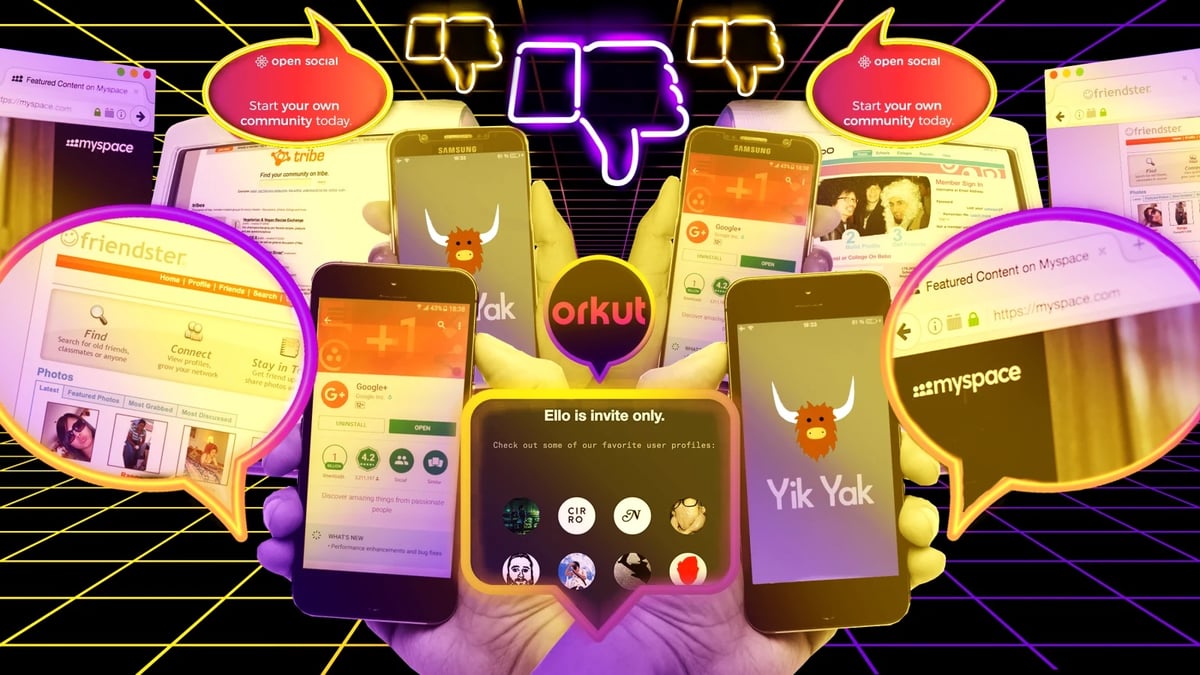How [Points In A Circle] All This Could Be Different
Gizmodo has a pretty cool theme this week: the Alternate Internet. Not, like, the internet where they play Stone Temple Pilots b-sides — although, cool idea. No, like, the internet of alternate universes, different pasts and futures, where things went differently and like, Yahoo doesn’t ruin all it touches. That’s my kind of party.

The story on alternate social media networks offers a nice media archaeology of all these sites; how they were covered and explained in the moment. Check out this explanation of Friendster in SF Weekly from August 13, 2003:
“Your induction into Friendster starts out innocently enough: You receive an e-mail invitation from a friend. It doesn’t cost anything to join, so you give it a whirl. You answer questions about your profession, favorite books, movies, music, and other interests, then upload a digital photo of yourself.
Thumbnail versions of your friends’ photos appear on your profile page like a collection of trading cards. Clicking on their pictures takes you to their pages, where you can see all of their friends, and so on. Even with only a few friends, you find that — through friends of friends — you suddenly have access to a social network of thousands of people.”
It’s a pretty common story what happened to all these sites; either they took the money, and got mismanaged, driving off whatever users they had in the first place, or they didn’t take the money, which meant they could never stay usable enough to support all of the users they were taking on.
A few other common threads: a fear of porn, other lewd behavior, and Yik Yak -style harassment. In short, it’s hard to make a social media site actually go big. You need money, a vanilla rep, ruthlessness, and more money. In the end, Facebook really was in the right place at the right time.
The one thing this doesn’t do is some deep left-field speculating, like, what if Google had seen what it had in Blogger to create Facebook before Facebook? Or Yahoo had figured it out with version X of whatever asset Yahoo had? There are social networks, real or latent, bigger than the social media graveyeard — some of the pieces are still here.





Stay Connected